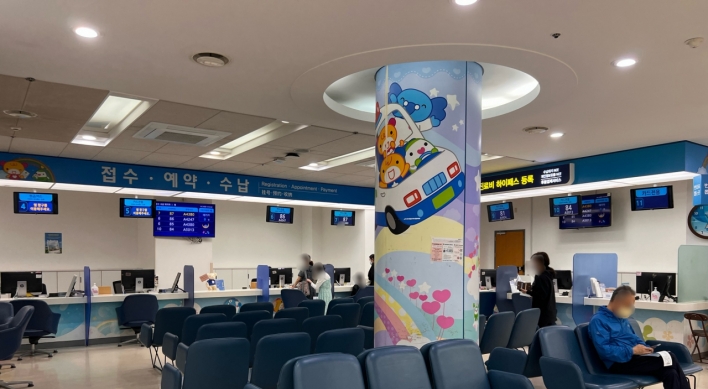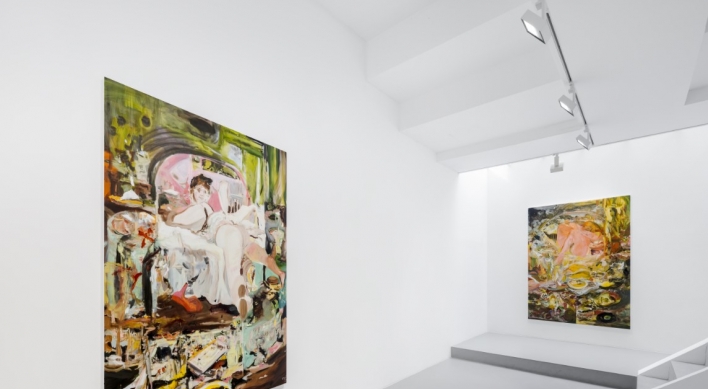South Korea’s political parties remain split over the U.S.’ push to possibly deploy an advanced missile defense system in Korea, according to statements by lawmakers here on Thursday, complicating Seoul’s domestic debate.
The conservative ruling Saenuri Party was seen to generally support the deployment of the Terminal High Altitude Area Defense system, citing Pyongyang’s growing ballistic capabilities. The main opposition New Politics Alliance for Democracy appeared more ambivalent.
Against the backdrop of divisive views, Seoul has so far stuck to its neutral stance on THAAD, despite recent U.S. officials’ increasing comments backing the system in Korea.
South Korean presidential spokesman Min Kyung-wook said Wednesday that Seoul would form an “independent decision” from Washington.
“If we need (THAAD) then we should bring the weapons here,” Saenuri Rep. Choung Byoung-gug, member of the parliament’s foreign affairs committee, said on a morning radio show in Seoul. “Waiting for the North to make the first move is a losing policy,” he added.
Saenuri Rep. Shim Yoon-joe, also a foreign affairs committee member and ex-senior diplomat, told The Korea Herald that the South should support THAAD if the U.S. brought the weapons here to protect U.S. citizens in Korea.
“If the U.S. decides it needs THAAD to protect its people in Korea, we should support their plans, as part of the spirit of the South Korea-U.S. alliance,” he said.
But the Saenuri Party does not have a set-in-stone official stance, party spokesman Rep. Kim Young-woo told The Korea Herald.
Main opposition lawmakers repeated their doubts over the weapons, saying THAAD would be ineffective due to South Korea’s proximity to the North.
“THAAD is not applicable to Korea’s war terrain,” NPAD Rep. Ahn Gyu-baek, a member of parliament’s National Defense Committee, told The Korea Herald. “The weapons shoot down incoming missiles in high altitudes. We need something that will shoot down missiles at lower heights (as missiles fired from the North would not have to fly high to reach the South).”
NPAD Rep. Baek Kun-ki, a former four-star Army general, suggested the cost-benefit analysis did not support deploying THAAD to Seoul, in a phone interview with The Korea Herald.
“The cost-benefit calculations don’t show for it,” he said. “If we use billions to buy THAAD, we wouldn’t have money to improve our own missile defense system,” the former general said, referring to the Korean Air and Missile Defense, an indigenous ballistic missile defense plan.
Baek based his assertion on the premise that the South would have to fund a major portion of the cost of deploying THAAD to Korea.
But NPAD lawmakers said they were not against THAAD if it was used to protect U.S. citizens and servicemen in South Korea.
United States Forces Korea maintains a 28,500-man garrison in the South. Thousands of families of the servicemen and women also reside here.
“If the U.S. brings them to protect their own, I don’t think we have reasons to oppose such plans,” Baek said.
However, Ahn told The Korea Herald he would support a THAAD deployment if the U.S. shouldered most of the cost.
Ahn suspected that recent statements by high-level Washington officials such as those by Secretary of State John Kerry on Monday supporting THAAD in Korea was part of a U.S. public opinion campaign.
“I think that the recent push by U.S. officials for THAAD (in Korea) is a public opinion campaign aiming to create favorable public opinion, and compel the (Seoul government) to pay a large part of the bill.”
Shim of the Saenuri Party disagreed.
“I don’t think those comments were meant to pressure us,” he said. “The U.S. has not formulated any official opinion of its own on THAAD deployment to Korea. I think those comments are part of the debate within the U.S.,” Shim said.
By Jeong Hunny (hj257@heraldcorp.com)
The conservative ruling Saenuri Party was seen to generally support the deployment of the Terminal High Altitude Area Defense system, citing Pyongyang’s growing ballistic capabilities. The main opposition New Politics Alliance for Democracy appeared more ambivalent.
Against the backdrop of divisive views, Seoul has so far stuck to its neutral stance on THAAD, despite recent U.S. officials’ increasing comments backing the system in Korea.
South Korean presidential spokesman Min Kyung-wook said Wednesday that Seoul would form an “independent decision” from Washington.
“If we need (THAAD) then we should bring the weapons here,” Saenuri Rep. Choung Byoung-gug, member of the parliament’s foreign affairs committee, said on a morning radio show in Seoul. “Waiting for the North to make the first move is a losing policy,” he added.
Saenuri Rep. Shim Yoon-joe, also a foreign affairs committee member and ex-senior diplomat, told The Korea Herald that the South should support THAAD if the U.S. brought the weapons here to protect U.S. citizens in Korea.
“If the U.S. decides it needs THAAD to protect its people in Korea, we should support their plans, as part of the spirit of the South Korea-U.S. alliance,” he said.
But the Saenuri Party does not have a set-in-stone official stance, party spokesman Rep. Kim Young-woo told The Korea Herald.
Main opposition lawmakers repeated their doubts over the weapons, saying THAAD would be ineffective due to South Korea’s proximity to the North.
“THAAD is not applicable to Korea’s war terrain,” NPAD Rep. Ahn Gyu-baek, a member of parliament’s National Defense Committee, told The Korea Herald. “The weapons shoot down incoming missiles in high altitudes. We need something that will shoot down missiles at lower heights (as missiles fired from the North would not have to fly high to reach the South).”
NPAD Rep. Baek Kun-ki, a former four-star Army general, suggested the cost-benefit analysis did not support deploying THAAD to Seoul, in a phone interview with The Korea Herald.
“The cost-benefit calculations don’t show for it,” he said. “If we use billions to buy THAAD, we wouldn’t have money to improve our own missile defense system,” the former general said, referring to the Korean Air and Missile Defense, an indigenous ballistic missile defense plan.
Baek based his assertion on the premise that the South would have to fund a major portion of the cost of deploying THAAD to Korea.
But NPAD lawmakers said they were not against THAAD if it was used to protect U.S. citizens and servicemen in South Korea.
United States Forces Korea maintains a 28,500-man garrison in the South. Thousands of families of the servicemen and women also reside here.
“If the U.S. brings them to protect their own, I don’t think we have reasons to oppose such plans,” Baek said.
However, Ahn told The Korea Herald he would support a THAAD deployment if the U.S. shouldered most of the cost.
Ahn suspected that recent statements by high-level Washington officials such as those by Secretary of State John Kerry on Monday supporting THAAD in Korea was part of a U.S. public opinion campaign.
“I think that the recent push by U.S. officials for THAAD (in Korea) is a public opinion campaign aiming to create favorable public opinion, and compel the (Seoul government) to pay a large part of the bill.”
Shim of the Saenuri Party disagreed.
“I don’t think those comments were meant to pressure us,” he said. “The U.S. has not formulated any official opinion of its own on THAAD deployment to Korea. I think those comments are part of the debate within the U.S.,” Shim said.
By Jeong Hunny (hj257@heraldcorp.com)
-
Articles by Korea Herald




![[Grace Kao] Hybe vs. Ador: Inspiration, imitation and plagiarism](http://res.heraldm.com/phpwas/restmb_idxmake.php?idx=644&simg=/content/image/2024/04/28/20240428050220_0.jpg&u=)

![[Herald Interview] Mom’s Touch seeks to replicate success in Japan](http://res.heraldm.com/phpwas/restmb_idxmake.php?idx=644&simg=/content/image/2024/04/29/20240429050568_0.jpg&u=)


![[News Focus] Lee tells Yoon that he has governed without political dialogue](http://res.heraldm.com/phpwas/restmb_idxmake.php?idx=644&simg=/content/image/2024/04/29/20240429050696_0.jpg&u=20240429210658)









![[Today’s K-pop] Seventeen sets sales record with best-of album](http://res.heraldm.com/phpwas/restmb_idxmake.php?idx=642&simg=/content/image/2024/04/30/20240430050818_0.jpg&u=)